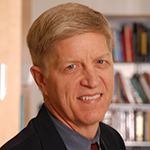The discovery of properdin and its many potential functions was considered to be a major breakthrough. Scientists and even the general public seized upon the properdin system as a possible explanation for diverse, unsolved problems of human medicine. Properdin research became a hot topic and a parade of investigators visited Pill, seeking his advice and expertise on the topic. The drain on his time and energies was substantial.
At the same time, seeds of doubt and opposition to his research were growing, led by another eminent immunologist, Robert Nelson, MD, of Yale University in New Haven, Conn.8 He questioned whether Pill’s data was actually describing the “classical” and not an “alternative” pathway for complement activation. In other words, he suggested that Pill’s data was artifactual. Being a prominent immunologist, Dr. Nelson’s powerful arguments and stinging critique of Pill’s work held sway with many other influential immunologists. As quickly as the swell of enthusiasm about properdin had grown, it soon turned in the opposite direction.
Pill could not deal with this rejection. Though his theories about properdin, Factor B, and the alternative complement pathway were ultimately vindicated by the work of several of his colleagues, Pill did not bask in this glory. He had committed suicide a few years earlier. Success misjudged as failure. There is something dreadfully wrong with this interpretation.
Failure Is Not the F-word
How one deals with failure defines one’s core character. Failure can nurture intellectual growth and foster personal maturity. In the tech start-up world, failure is often worn as a badge of honor, because it is assumed that the disappointing experience provided some great learning opportunities. Perhaps it is time for all of us in medicine to regard failure in that way, too. By the way, B is never a failing grade. Except, maybe, at Harvard.
Dr. Helfgott is physician editor of The Rheumatologist and associate professor of medicine in the division of rheumatology, immunology, and allergy at Harvard Medical School in Boston.
References
- Koestler A. The Act of Creation. Macmillan and Company, New York 1964.
- The Nobel Prize in Physiology or Medicine 1997. Stanley B. Prusiner – Biographical. Available at www.nobelprize.org/nobel_prizes/medicine/laureates/1997/prusiner-bio.html. Accessed January 10, 2014.
- Prusiner SB. Novel proteinaceous infectious particles cause scrapie. Science. 1982;216:136-144.
- Marshall BJ, Warren JR. Unidentified curved bacilli in the stomach of patients with gastric and peptic ulceration. Lancet. 1984;1:1311-1315.
- Marshall BJ, Armstrong JA, McGcchie DB, et al. Attempt to fulfill Koch’s postulates for pyloric Campylobacter. Med J Aust. 1985;142:436-439.
- Lepow IH. Louis Pillemer, properdin, and scientific controversy. J Immunol. 1980;125:471-478.
- Ratnoff WD. A war with the molecules: Louis Pillemer and the history of properdin. Perspect Biol Med.1980;23:638-657.
- Nelson RA. An alternative mechanism for the properdin system. J Exp Med. 1958;108:515-535.
